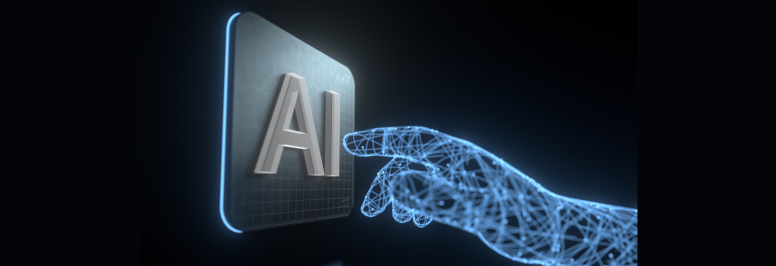As the use of generative Artificial Intelligence (AI) continues to expand in workplaces across the globe, the Diocesan Curia gathered January 11 to discuss its potential use in a Catholic context, with help from experts from California State University, San Bernardino (CSUSB) and the Western Catholic Education Association (WCEA).
“There is a practical end to it and there is a moral end to it and there is a theological end to it,” said WCEA Executive Director Greg Dhuyvetter.
Dhuyvetter gave a presentation to the Curia, which is the top lay advisory group to Bishop Alberto Rojas, beginning with a brief history of the technologies that have led to the development of AI, before listing some examples of popular AI applications in use today and what they do. He defined Generative AI, the more recent technological phenomenon, as “digital machines programmed to perform set tasks, imitating human creative and cognitive behavior.”
Popular apps like ChatGPT, Google Bard and Claude were reviewed as tools that can be helpful in creating presentations, memos, papers and articles, answering questions and general problem solving. These apps are already in limited use by some diocesan ministries.
“It can be very practical for a lot of things,” Bishop Alberto Rojas commented during the discussion, but later added, “morality is going to be a question when it comes to artificial intelligence.”
Later in the discussion Dhuyvetter outlined concerns around larger issues of privacy, accountability/transparency, dependability of facts and impact on the human workforce. Following his presentation CSUSB Media Studies Professor Mihaela Popescu and Information Technology expert Fadi Muheidat delved deeper into concerns about the reliability and inherent biases that are contained in the data that Generative AI uses to create content.
Popescu shared a term “algorethics” that has been coined to describe the need to ensure ethical application of the algorithms that are used in AI.
“There’s always patterns [in the data] that favor some over others,” she acknowledged. Popescu added that moral values need to be considered as AI continues to develop. “Perhaps we have a responsibility as a human race to train this non-human entity,” she said.
In his message for World Day of Peace this year Pope Francis also emphasized the importance of the human mind and spirit as a guiding force in the development and use of AI.
“‘Intelligent’ machines may perform the tasks assigned to them with ever greater efficiency, but the purpose and the meaning of their operations will continue to be determined or enabled by human beings possessed of their own universe of values,” the Pope wrote in his message, which was studied by the Curia prior to the January 11 discussion. The message also proposed a set of human values that should inform the use of AI – Inclusion, transparency, security, equity, privacy and reliability.
The Diocese does not currently have a policy or guidelines on the use of AI in the course of ministry but the idea for some future local guidance on the subject was proposed during the discussion.
“The question is what is we can use and what can we have some control over in using it,” Bishop Rojas said.


